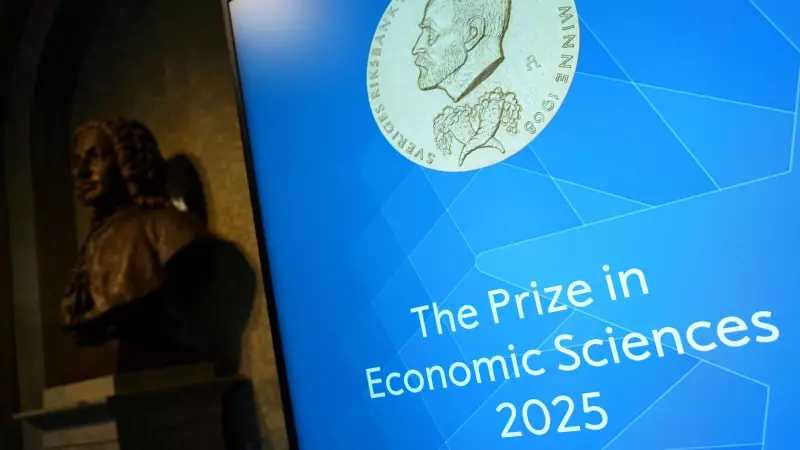
The prestigious Nobel Prize in Economics for 2025 has been awarded to three visionary economists whose work could fundamentally reshape India's development trajectory. Joel Mokyr, Philippe Aghion, and Peter Howitt have been honored for their groundbreaking research on innovation-driven growth and creative destruction - concepts that hold profound implications for emerging economies like India.
The Revolutionary Trio Behind Modern Growth Theory
These Nobel laureates have transformed our understanding of what truly drives economic progress in the 21st century. Their collective work demonstrates that sustainable growth doesn't come from incremental improvements but from radical innovations that disrupt existing industries while creating new ones.
Joel Mokyr's historical analysis reveals how knowledge economies have consistently outperformed resource-based ones. His research shows that societies embracing scientific progress and technological experimentation achieve long-term prosperity.
Philippe Aghion and Peter Howitt's influential "creative destruction" model explains how new technologies inevitably make old ones obsolete, but this painful transition ultimately fuels economic advancement and raises living standards.
India's Innovation Imperative: From Implementation to Invention
The timing of this Nobel recognition couldn't be more relevant for India. As the world's fastest-growing major economy, India stands at a critical juncture where it must transition from being primarily an implementer of existing technologies to becoming a creator of groundbreaking innovations.
The laureates' research suggests several strategic priorities for India:
- Education Transformation: Moving beyond rote learning to foster creative thinking and problem-solving skills
- Research Investment: Significantly increasing funding for fundamental scientific research
- Regulatory Modernization: Creating policies that encourage experimentation while managing disruption
- Entrepreneurial Ecosystem: Building support systems for risk-taking innovators
Creative Destruction: Threat or Opportunity for India?
Many policymakers fear the disruptive effects of technological change, but the Nobel-winning research provides a different perspective. Creative destruction, while challenging in the short term, generates net positive outcomes through:
- Higher productivity across all sectors
- Creation of new industries and job categories
- Improved products and services for consumers
- Global competitiveness for nations that embrace change
The Road Ahead: India's Path to Innovation Leadership
India possesses unique advantages that position it well for an innovation-led growth model. With a massive young population, strong STEM education foundation, and growing startup ecosystem, the country has the raw materials for technological leadership.
The 2025 Nobel laureates' work suggests that countries which systematically support innovation through education, research, and flexible policies achieve superior long-term growth. For India, this means building institutions that not only adopt global technologies but contribute original innovations to the world.
As India aims to become a $5 trillion economy and beyond, the insights from these Nobel-winning economists provide both warning and inspiration. The choice isn't whether to embrace disruptive innovation, but how to harness it most effectively for inclusive, sustainable growth.





